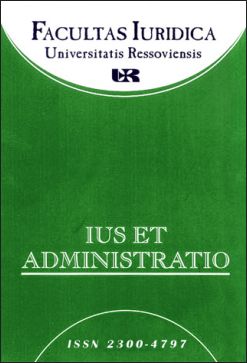Inheritance Privileges in the Historical Development of Private Roman Law
Keywords:
inheritance privileges, Roman Law, beneficium, privilegiumAbstract
The group of privileges occurring in the sources of Roman law and distinguished in literature as the oldest is beneficium abstinendi which was probably known as early as I century B.C. and commonly used throughout the classical period until Justinian’s times. It seems that chronologically the second privilege was bonorum possessio. The next to emerge was the privilege of beneficium legis Falcidiae, which was introduced in accordance with Lex Falcidia from the year 40 BCE. The next chronologically was the beneficium separatio bonorum, which was established and commonly used by the late II and early III century. Another privilege was privilegium militum, which from the times of Julius Caesar provided the rules for drawing up a soldier’s will (testamentum militis). From the reign of Augustus this privilegium included the principle of peculium castrense, referring to special property acquired by a family’s son during his military service. Chronologically the latest was beneficium inventarii, i.e. the institution of the benefit of inventory introduced by Justinian in the constitution dating from the year 531.
Downloads
Downloads
Published
How to Cite
Issue
Section
License
Copyright (c) 2013 Ius et Administratio

This work is licensed under a Creative Commons Attribution-NonCommercial-NoDerivatives 4.0 International License.

